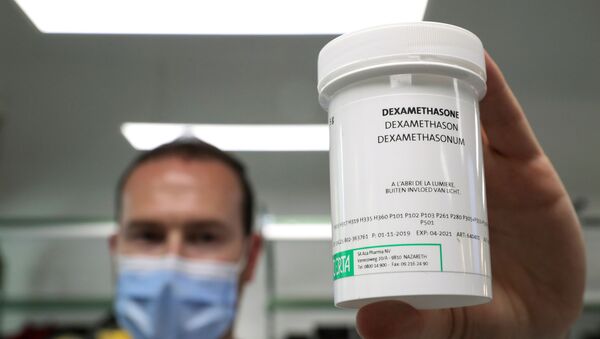Although the study’s results were discussed in a news release Tuesday, the findings have not yet been peer-reviewed or officially published in a journal.
In the trial, 2,104 COVID-19-positive patients received 6 milligrams of dexamethasone once every day for 10 days. The study participants’ health outcomes were compared with 4,321 patients who received the usual care, but no dexamethasone.
The findings showed that the drug “reduced deaths by one-third in ventilated patients” and “by one-fifth in other patients receiving oxygen only.” The drug did not have any benefit in patients who did not need respiratory support.
“Based on these results, 1 death would be prevented by treatment of around 8 ventilated patients or around 25 patients requiring oxygen alone,” the release notes.
The UK’s Chief Scientific Adviser Sir Patrick Vallance called the study’s results “tremendous” in a statement accompanying the release.
“It is particularly exciting as this is an inexpensive widely available medicine. This is a groundbreaking development in our fight against the disease, and the speed at which researchers have progressed finding an effective treatment is truly remarkable,” Vallance said.
“It shows the importance of doing high quality clinical trials and basing decisions on the results of those trials.”
Peter Horby, one of the chief investigators in the study, also claimed, “Dexamethasone is the first drug to be shown to improve survival in COVID-19.”
“This is an extremely welcome result. The survival benefit is clear and large in those patients who are sick enough to require oxygen treatment, so dexamethasone should now become standard of care in these patients. Dexamethasone is inexpensive, on the shelf, and can be used immediately to save lives worldwide,” he said in the Oxford release.
However, as pointed out by Forbes, the Oxford team’s claim that dexamethasone is the first medication to help save the lives of COVID-19 patients is not true.
A May 6 study published in the Journal of the American College of Dermatology found that the survival rate of intubated patients who were also treated with anticoagulants was 70.9%, compared to 37.3% for those who did not receive the anticoagulant therapy.
A May 8 study published in The Lancet also found that a cocktail of interferon beta-1b, lopinavir-ritonavir and ribavirin increased survival rates in very sick COVID-19 patients.

